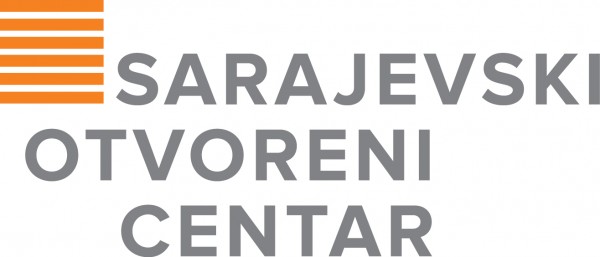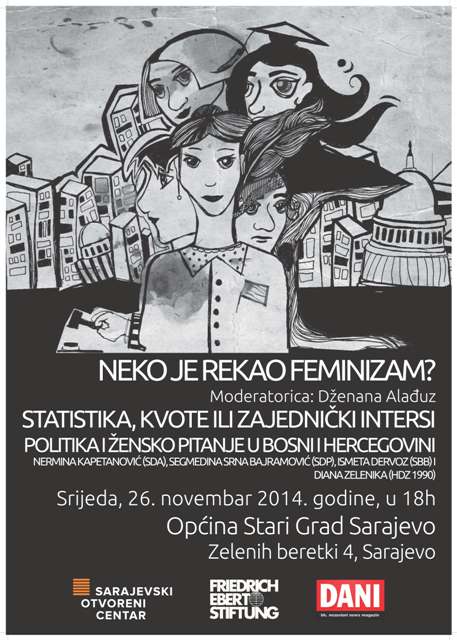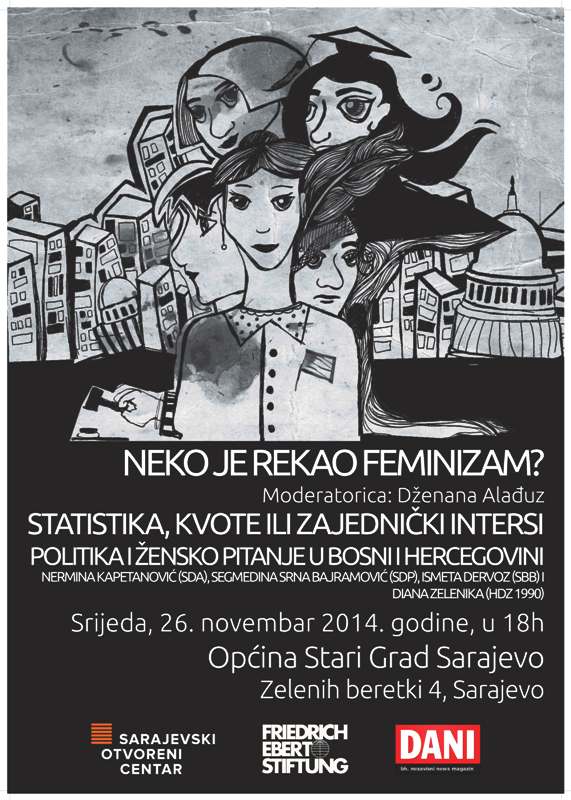English below!
Sarajevski otvoreni centar i Fond otvoreno društvo BiH
Vas pozivaju na predavanje
KAKO SE POSTIŽE DUBOKA DRUŠTENA MODERNIZACIJA?
SLUČAJ ŠPANIJE
koje će održati Jordi Vaquer,
direktor Inicijative otvoreno društvo za Evropu
Utorak, 18. februar 2014, 18h
Hotel Evropa, Vladislava Skarića 5
Duboka društvena modernizacija ima mnoga lica i interpretacija. U ovom predavanju, društvena modernizacija se shvata kao proces u kojem društvo prihvata različitost i vrši pritisak na institucije da zaštite prava onih koji_e ne pripadaju većini. Predavanje će istražiti uzroke duboke društvene promjene kroz primjere transformacije Španije iz vrlo konzervativnog društva nakon diktature do članice EU koja je poznata po svom socijalnom liberalizmu: uprkos drugoj najvećoj krizi u Evropskoj uniji nakon Grčke, ksenofobni populisti nisu uspjeli pridobiti politički ugled u zemlji koja je integrisala 7 miliona imigranata tokom 15 godina; uloga žena se spektakularno promijenila, pogotovo u privatnoj sferi, ali i u politici; Španija se pokazala najtolerantnijom zemljom na svijetu za LGBT osobe, prema istraživanju u sklopu projekta "Global Attitudes" istraživačkog centra Pew Research. Kako se ovo desilo i da li se ova iskustva mogu primjeniti drugdje?
Jordi Vaquer - Prije nego što je postao direktor Incijative otvoreno društvo za Evropu, Jordi Vaquer Fanés je bio direktor Centra za međunarodne odnose u Barceloni (CIDOB), jednom od najuticajnijih južnoevropskih think tankova koji se bave međunarodnim odnosima.
Vaquer je autor kolumne o međunarodnim odnosima za El País (španjolske vodeće novine) i urednik istaknutog akademskog magazina koji se fokusira na pitanja međunarodnih odnosa - Revista CIDOB d’Afers Internacionals.
Inicijativa otvoreno društvo za Evropu: Inicijativa otvoreno društvo za Evropu ohrabruje Evropljane_ke i organizacije civilnog društva da učvrste i, tamo gdje je potrebno, ponovo preuzmu centralnu ulogu u evropskim demokratskim društvima. Njen cilj je osigurati projekt integracije Evrope, otjelovljen u Evropskoj uniji, doprinijeti vitalnosti i kvalitetu evropskih demokratija zasnovanih na vrijednostima otvorenog društva. Inicijativa otvorenog društva za Evropu doprinosi izgradnji vitalnih i legitimnih demokratija u Evropskoj uniji kroz rad sa širokim spektrom organizacija civilnog društva umjesto na nivou elita, na kojem se trenutno odvija evropska debata. Inicijativa stavlja poseban naglasak na jačanje glasova van centra, glasova na evropskoj geografskoj periferiji, žena i mladih, zastupnika_ca ideologija koja ne pripadaju glavnim tokovima ili društvenih grupa koje su isključene iz ili nisu predstavljene u političkim procesima: migranata, osoba bez državljanstva ili manjina bilo koje vrste.
*****************************
Sarajevo Open Centre and Open Society Fund BiH
invite you to the lecture
HOW DOES DEEP SOCIAL MODERNISATION HAPPEN?
THE CASE OF SPAIN
by Jordi Vaquer,
the Director of the Open Society Initiative for Europe.
Tuesday, February the 18th 2014, 18h
Hotel Europe, Vladislava Skarića 5
Deep social modernisation has many faces and interpretations. In this lecture, social modernisation will be understood as the process by which society accepts and embraces diversity, and pressures its institutions to protect the rights of those who do not belong to the majority. The lecture will explore the causes of deep social change, taking the example of the transformation of Spain, from a very conservative society after the ditactorship to a EU member state that stands out for its social liberalism: despite undergoing the secondest deepest crisis in the EU after Greece, xenophobic populists have failed to win a political presence in a country that integrated 7 million immigrants in 15 years; the role of women has changed spectacularly, in particular at home and in politics; and Spain has emerged as the most tolerant country towards LGBT individuals in the world in the last Pew Attitudes Survey. How did this happen and is this experience relevant anywhere else?
About Jordi Vaquer: Before becoming director of the Open Society Initiative for Europe, Jordi Vaquer Fanés was director of the Barcelona Centre for International Affairs (CIDOB), one of southern Europe’s most influential international relations think tanks.
Vaquer writes a regular column about international affairs in El País(Spain’s leading newspaper) and edits Revista CIDOB d’Afers Internacionals, the Barcelona Centre’s prominent Spanish-language academic journal focusing on international relations.
About Open Society Initiative for Europe: The Open Society Initiative for Europe seeks to empower Europeans and their civil society organizations to reinforce and, where necessary, reclaim their central role in European democracies. It aims to ensure that Europe’s common integration project, embodied by the European Union, contributes to the vitality and quality of European democracies based on the values of open society. The Open Society Initiative for Europe contributes to building more vibrant and legitimate democracies in the European Union by working with a wide range of civil society organizations, rather than only at the elite level where the European debate is now overwhelmingly conducted. The Initiative places particular emphasis on strengthening less central voices, such as those in Europe’s geographic periphery, women and young people, proponents of non-mainstream ideologies or the social groups that are excluded from, or underrepresented in, the political process, such as migrants or refugees, stateless citizens or minorities of all kinds.
Mariña Barreiro
Programme Manager/Rukovoditeljica programa
skype SarajevoOpenCentre - mail marinha@soc.ba- web www.soc.ba








